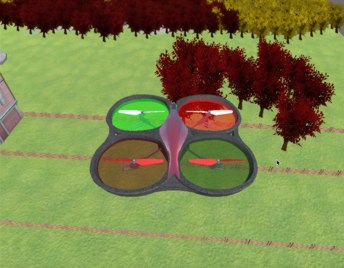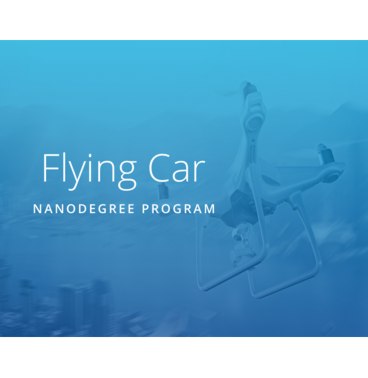| Udacity's Flying Car Nanodegree About To Lift Off |
| Written by Sue Gee | |||
| Thursday, 25 January 2018 | |||
|
The inaugural session of the new nanodegree program, which intends to equip its students with skills needed for a future in which travel will not only be autonomous but also take place in the air, starts at the end of February. Enroll in Flying Cars and Autonomous Flight Nanodegree before February 7th for 25% discount on cost of first term.
We first reported on Sebastian Thrun's plans for this futuristic nanodegree in September 2017 when he announced it at the Disrupt conference. In this video trailer for the Flying Car Nanodegree which is now accepting applications for its first presentation, Thrun expresses his conviction that the future of personal transportation is in the air:
Although flying cars seem a long way off, self-driving cars are already a reality and so are autonomous flying vehicles, aka drones, and in the video you'll see the sort of drones that you'll encounter in the early parts of the course, together with a glimpse of the Backyard Flyer simulator that forms the first hand-on project.
The Flying Car Nanodegree program curriculum is split over two terms: Term 1: Aerial Robotics covers the fundamental concepts required to design and develop robots that fly. Students wii work with the quadrotor test platform and Udacity's custom flight simulator to implement planning, control, and estimation solutions in Python and C++. Term 2: Intelligent Air Systems goes into the specifics of flying cars and coordinated autonomous systems. After an intro to fixed wing aircraft, students will learn how to update and optimize vehicle parameters and routes over “flying car length” missions and learn to coordinate entire fleets of flying cars taking into account real-world systems and regulations. Projects will culminate in a “flying city” finale.
This nanodegree is at an intermediate to advanced level and prior to applying, you should meet the following pre-requisties:
If you fall short of any of this you are encouraged to enroll in the Intro to Self-Driving Cars Nanodegree Program with the proviso that graduates of this introductory program earn guaranteed admission to the Flying Car Nanodegree Program. In addition graduates of Udacity's Self-Driving Car Engineer and Robotics Software Engineer Nanodegree programs are guaranteed entry. If you are not already convinced that you want to apply an extensive Free Preview is now available in which you can meet the instructors and explore the full curriculum. You can even download the flight simulator provided for the nanodegree and try out its first project: Backyard Flyer in which you get a drone to takeoff, fly a predetermined path, and land in a simulated backyard environment all using Python and a Jupyter Notebook. Be warned, this is likely to tempt you to join in and it's a substantial time commitment - you can expect to complete the program in 6 months if you can devote 15 hours per week to it. The tuition for each term is $1200, paid prior to the start of the term. Applicants to the first term will receive a submission response by February 13, 2018. The classroom is scheduled to open in late February. Apply by February 7, 2018 and you will be eligible for a special Early Adopter tuition rate of $899 for the first term!
More InformationFlying Cars and Autonomous Flight Nanodegree Related ArticlesUdacity Launches Flying Car Nanodegree Program Udacity's Self-Driving Car Engineer MIT Self-Driving Car - Free Course To be informed about new articles on I Programmer, sign up for our weekly newsletter, subscribe to the RSS feed and follow us on Twitter, Facebook or Linkedin.
Comments
or email your comment to: comments@i-programmer.info
|
|||
| Last Updated ( Thursday, 25 January 2018 ) |




